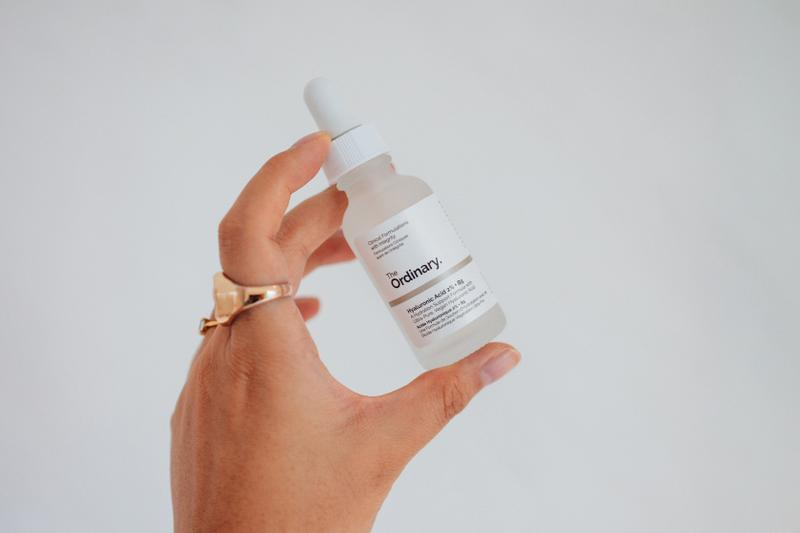What is Hyaluronic Acid?

Hyaluronic acid (HA) is a natural skin care ingredient derived from rooster combs and other animal tissues which acts as a moisturizing agent, binding moisture to the skin and increasing hydration. It’s naturally found in our bodies and gives our skin its volume, plumpness and suppleness. Hyaluronic acid serum helps to fight acne because when applied topically it can help to hydrate the skin and make sure pores don’t become clogged with excess oil and dead skin cells.
Can Hyaluronic Acid It Cause Acne?
Hyaluronic acid is a natural ingredient that doesn’t cause acne in and of itself. However, it’s not always the case that a product which is “good for acne” is also suitable for your skin type and can actually cause you to break out.
What If I Have Acne-Prone Skin? Is It Better For Me To Use Hyaluronic Acid?
If you have acne-prone skin and you’re considering using a hyaluronic acid serum we recommend that you do not use it directly on your acne.
Here’s why: Hyaluronic acid serums work by trapping moisture in the skin, however when the skin is already over-hydrated breakouts can become more likely. If you add an HA serum to your skincare routine on top of other products which already contain hydrating ingredients this can result in a cumulative moisturizing effect that causes skin cells to become overstimulated and produce excess oil (3).
How Can I Use Hyaluronic Acid Safely And Prevent Acne?
If you’re using a hyaluronic acid serum and you’re worried that your skin is becoming oily or overly hydrated due to the product then we recommend that you apply it after any pore-clogging products such as clay masks, acne treatments and benzoyl peroxide. This will help to ensure that excess moisture doesn’t get trapped in the pores and cause breakouts.
You should also wait until your skin is completely dry before applying a hyaluronic acid serum and avoid using it around the acne-prone T-zone area to minimize any chance of pore congestion.
If you’re concerned about clogged pores and excess oil but want to use a HA serum in your skin care routine then we recommend using it in a targeted way – for example, on the fine lines around your eyes and mouth.
With these simple precautions you can use a hyaluronic acid serum safely if you have acne-prone skin without causing further breakouts or exacerbating existing acne.
Hyaluronic acid is sometimes combined with other skincare ingredients touted as helpful for acne, but it’s not an acne-fighting ingredient on its own.
What Type of Hyaluronic Acid Is Found in Skincare Products?
Hyaluronic acid comes in many different molecular weights depending upon the source. For example, a low molecular weight hyaluronic acid is better suited towards penetrating into the skin whereas a high molecular weight hyaluronic acid offers more water-binding capacity.
High molecular weight hyaluronic acid doesn’t necessarily penetrate further into the skin than lower weights but it does offer increased moisturizing benefits. In fact, studies have shown that hyaluronic acid is more efficient at retaining water in the skin when used in high concentrations.
Much of the research has focused on low molecular weight hyaluronic acid and it’s important to note that this isn’t necessarily representative of what you would find in skincare products.
How to Use Hyaluronic Acid
You can use hyaluronic acid serum underneath your moisturizer to gain the maximum hydration boost. Wash face with a mild cleanser to remove any dirt, impurities, and makeup. Then, follow up with a toner. While skin is still damp, apply hyaluronic acid. Hyaluronic acids absorbs better into the skin if it is moist. Follow up with your favorite moisturizer.
If you have dry skin, it is probably best to stay away from hyaluronic acid serum and always apply all other skincare products after or underneath a moisturizer. To avoid any potential breakouts make sure you choose a serum with a low concentration of hyaluronic acid. About 0.2% is recommended .
You can always add more later if you feel your skin needs it. Hyaluronic acid has been shown to increase collagen production by 100%.
So can hyaluronic acid cause acne? The simple answer is no. Hyaluronic acid helps the skin to absorb moisture, but it does not clog pores.
